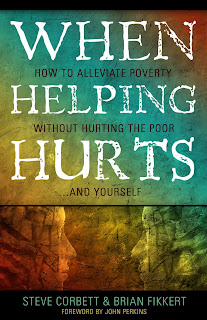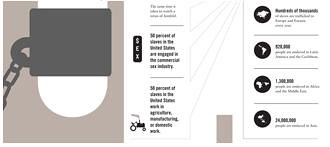
I’ve been blogging about my reflections on the Justice Conference in Philadelphia all month. I loved it. I hope what I gained and sharing with my wife shapes us, our family, our church, and our community. I know it sounds a bit lofty but in my mind this is the difference between consuming events/books/stories/practices/etc. and internalizing them.
So as I’ve been blogging about this and trying to filter out what actually is helpful and what is not, I’ve been critiquing as well. It’s easy to for critiquing to fall into splitting hairs and other unhelpful distractions. My hope is my push backs will point me (and perhaps you) to something deeper.
I felt this way during Gary Haugen’s message on Saturday morning.
[Read more…]
 As mentioned in the
As mentioned in the  Second, if you are getting involved, let’s commit to being involved responsibly. I highly recommend reading books like,
Second, if you are getting involved, let’s commit to being involved responsibly. I highly recommend reading books like, 
 I’ll admit it threw me off at first to see Jason, Laren and Bobby in their sunglasses, cool guy clothes and California accents hanging out in Uganda and asking questions that made me think, “I know you’re in the moment but you can edit, right?” Part of it was my Northeastern bias (we have cooler sunglasses, clothes, accents and ask better questions), the other part was understanding more of “the moment” and what they were doing with it. But I tell you, it made a pretty big difference to me that they didn’t say, “We’re just three cool guys from California …” and did nothing. Further, I am humbled by their activism and grateful for what it has influenced me to do.
I’ll admit it threw me off at first to see Jason, Laren and Bobby in their sunglasses, cool guy clothes and California accents hanging out in Uganda and asking questions that made me think, “I know you’re in the moment but you can edit, right?” Part of it was my Northeastern bias (we have cooler sunglasses, clothes, accents and ask better questions), the other part was understanding more of “the moment” and what they were doing with it. But I tell you, it made a pretty big difference to me that they didn’t say, “We’re just three cool guys from California …” and did nothing. Further, I am humbled by their activism and grateful for what it has influenced me to do. I’m glad Jason Russell and his friends decided to go to Uganda instead of vacation some where. Further, I’m glad they didn’t just go to Uganda and decide to only share what they found with their closest family and friends. Issues like human trafficking and forced child soldiers are difficult for many of us in the West to understand. The stories in these films are needed to bring these issues to light.
I’m glad Jason Russell and his friends decided to go to Uganda instead of vacation some where. Further, I’m glad they didn’t just go to Uganda and decide to only share what they found with their closest family and friends. Issues like human trafficking and forced child soldiers are difficult for many of us in the West to understand. The stories in these films are needed to bring these issues to light.





Recent Comments